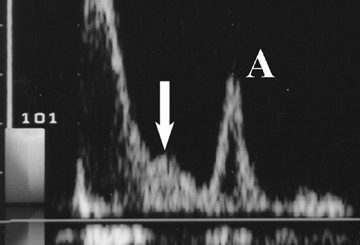Chronic kidney disease in pregnancy
Contents
- 1 Symptoms are unusual in chronic kidney disease in pregnancy until the glomerular filtration rate declines to
- 2 Not true of GFR (ml/min/1.73 m2) in different stages of chronic renal diseases
- 3 All are true of physiological changes of kidney in pregnancy except
- 4 Following biochemical changes are common in women with chronic kidney disease during pregnancy except
- 5 All are true of Management of chronic kidney disease in pregnancy except
- 6 Not true of management in chronic kidney disease with pregnancy
- 7 In shorts
Symptoms are unusual in chronic kidney disease in pregnancy until the glomerular filtration rate declines to
A. 20%
B. 25%
C. 50%
D. 30%
Not true of GFR (ml/min/1.73 m2) in different stages of chronic renal diseases
A. Stage 1- 80- 90
B. Stage 2- 60-89
C. Stage 4 – 15-29
D. Stage 5 – <15 or dialysis
All are true of physiological changes of kidney in pregnancy except
A. Decrease in concentrations of serum creatinine and urea
B. Decreased production of renin
C. Kidneys appear larger on ultrasonography
D. Renal pelvis and ureteric dilatation
Following biochemical changes are common in women with chronic kidney disease during pregnancy except
A. Normochromic normocytic anemia
B. Vitamin D deficiency
C. Increased number of WBCs or casts in urine
D. Serum levels of uric acid reduced
All are true of Management of chronic kidney disease in pregnancy except
A. Use of thromboprophylaxis with low molecular weight heparin is contraindicated if >1 g proteinuria/24 h
B. Aim to keep blood pressure between 120/70 mm Hg and 140/90 mm Hg
C. Maintain hemoglobin at 100-110 g/l
D. Normal red cell morphology with hematuria suggest urological pathology
Not true of management in chronic kidney disease with pregnancy
A. Haemodialysis is more effective than peritoneal dialysis
B. Magnetic resonance urography is used to detect obstruction
C. Prophylactic antibiotics can be used in patients with primary glomerulonephritis
D. Pregnancy contraindicated in renal transplant patients
In shorts
- Breastfeeding should be encouraged in women with chronic kidney disease, prednisolone, azathioprine, and angiotensin converting enzyme inhibitors are barely detectable in breast milk.
- Pregnant women with chronic kidney disease should have frequent dialysis to maintain blood urea levels< 100 mg/ml in order to decrease the risk of developing polyhydramnios.
- Transplantation usually provokes lost fertility in women but kidney transplant recipients have been conceiving for more than 50 years.
- The prognosis of membranoproliferative glomerulonephritis (GN), focal glomerulosclerosis or immuno nephropathy (IgA) is poor when compared to primary glomerulonephritis.
- Anemia from chronic renal insufficiency may be treated with recombinant erythropoietin.





